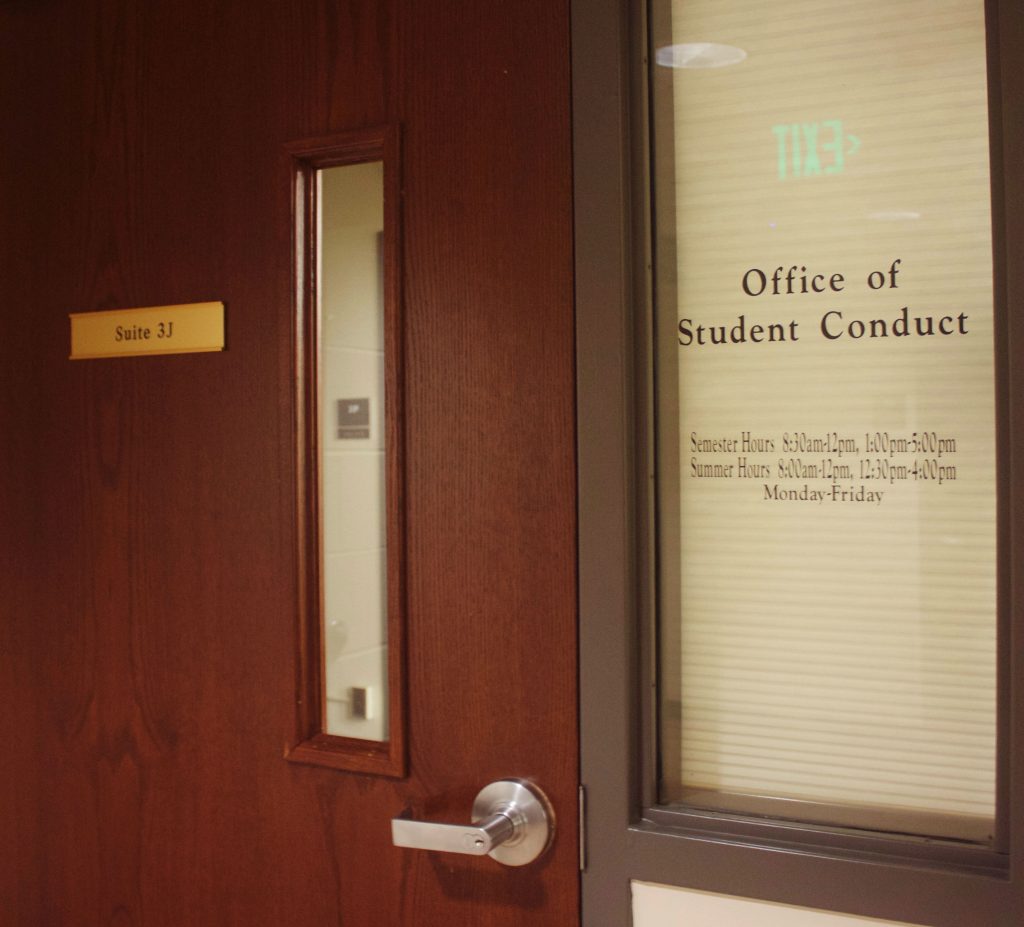
When Jason Balogun received his sanctions for violating the Binghamton University Code of Student Conduct in January, he said he needed a way to get his side of the story out, publishing a petition on Change.org. More than 615 signatures and an appeal later, his sanctions have been reduced.
Balogun, a sophomore majoring in computer science, was charged after Binghamton’s New York State University Police entered Balogun’s room in Bingham Hall of Newing College on Nov. 10 with a warrant to search the dorm and arrest his roommate, who had been selling marijuana and other drugs.
He was found with marijuana residue on related paraphernalia, and was later charged with possession of the drug. Through messages on his roommate’s phone, officers learned that Balogun had assisted in distributing these drugs on two occasions. Balogun said he was pressured into doing so and never received any payment or reward.
“He’d send me a lot of text messages about it while it happened,” Balogun said. “I just really wanted to be left alone … I just wanted to get it over with and have that out of my way.”
The fourth rule of the BU 2016-17 Code of Student Conduct sanction guidelines states the distribution or sale of a small quantity of marijuana can result in a one- to four-semester suspension, with final probation until graduation, removal from University housing and loss of visitation to all on-campus residences. The punishment for possession is much less severe: a one-year disciplinary warning and educational intervention.
In his initial administrative agreement from the Office of Student Conduct, Balogun was told he could either accept a four-semester suspension or permanent withdrawal from the University, which would be listed on his transcript as suspension until 2019.
According to the Code of Student Conduct, the Office of Student Conduct takes into account the amount and nature of the drugs involved, level of knowledge and the intent of the student and delivery or attempted delivery of the drug in deciding the severity of sanctions.
Balogun said he and his family thought the circumstances of the case did not fit the sanctions laid out in the initial agreement. By signing an agreement, students admit responsibility and accept the outlined sanctions, which can’t be appealed once signed.
Balogun decided not to accept the original sanctions and published the petition while his case was forwarded for a second review by a Student Conduct Board.
“We believe that this student willingly did nothing more than temporarily possess marijuana, a mistake to which the student has admitted to,” Balogun’s petition read. “Expulsion is something that damages a student’s future, and a four-semester suspension is also capable of doing so.”
Jazell Johnson, associate director of Student Conduct, could not comment on Balogun’s case, but did write that if a student is appealing a decision by the Student Conduct Board, the student is forwarded any petitions the office receives. The student holds the decision to present the petition as a part of their appeal or not.
“In general, in a hearing and in an appeal, a student has an opportunity to present information they feel is relevant to the decision regarding finding (responsible or not responsible) and sanction,” Johnson wrote in an email. “If the accused student would like these types of issues considered, they can present them.”
Balogun said he was inspired to start a petition after he had seen students in similar circumstances do the same. The petition was addressed to both Johnson and the Office of Student Conduct.
As of Jan. 24, the petition had 639 signatures. Some of Balogun’s friends took to platforms such as Facebook to share the petition, attesting to Balogun’s innocence.
“[Balogun] is the kind of kid that never wants to make anyone uncomfortable,” said Sam Belkin, a sophomore majoring in business administration.
Balogun also looked for advice from SA Advocates, a group of trained students designed to guide their peers through all parts of the conduct process with the goal of achieving a fair resolution for students accused of a conduct violation.
Allison Romer, a junior double-majoring in environmental studies and philosophy, politics and law, serves as the director of SA Advocates. While she has only handled one case with a petition so far, she says online petitions help inform students of the conduct process and its relevance to the student body.
“I believe there is power in numbers,” Romer wrote in an email. “Even if a petition doesn’t have a direct impact on the outcome of a particular case, it demonstrates that students are paying attention to what is happening to their peers as individuals but also for the university as a whole.
On Jan. 16, after the board reviewed Balogun’s case along with the petition, Student Conduct offered him the choice between a one-year suspension or a one-semester suspension with his fall 2017 grades expunged from his transcript. Balogun chose the latter.
While he said that he doesn’t think that the Student Conduct process was fair overall, Balogun did say writing a petition was a worthwhile addition to the process.
“Spreading of the petition was definitely a morale booster for me, in terms of seeing all those people sign it and having that many people confirm to be behind me in my cause,” Balogun said.


